What Does it Take to be a Sustainable Furniture Manufacturer?
Design Insider visited the Senator Group’s Head Office in Accrington, Lancashire to see why Senator is so highly regarded for its approach to sustainability. Senator is the largest workplace manufacturer in the UK and has ambitious objectives to be the most sustainable and environmentally friendly office furniture manufacturing operation in the world and achieve ‘net zero carbon’ by 2030. In particular we were interested to see the Sustain operation that was set up in 2009 and which handles Senator’s recycling operations.
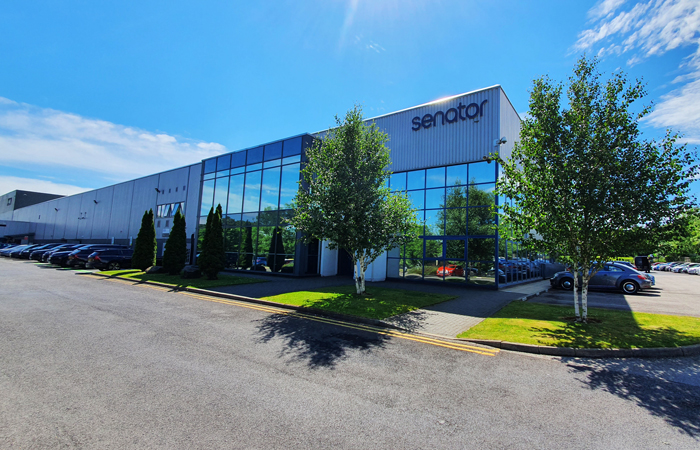
We were shown round the operations by Lianne Smith, Group IMS and Sustainability Manager, who is on the Steering Committee of FISP, the Furniture Industry Sustainability Programme, Paul O’Brien, Senator’s Recycling Manager and Kate O’Connor who has recently joined the Sustainability team.
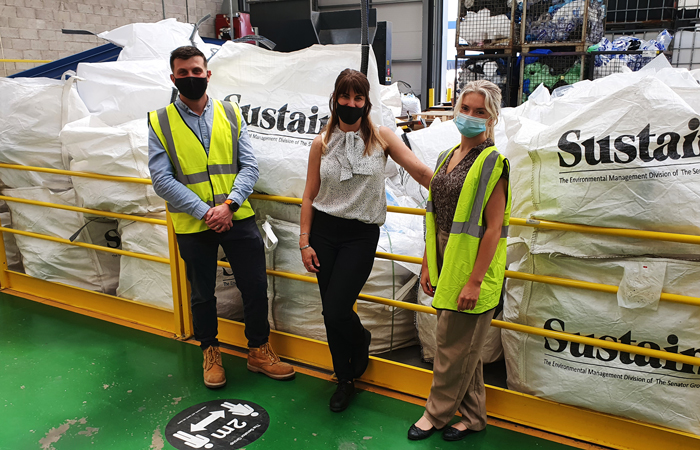
Senator has a long history in focussing on sustainability, having had Chain of Custody at their desking and Teal sites, being members of FISP, held ISO 14001 for many years and significantly investing in their Sustain Division. They have just launched an ambitious sustainability strategy focussing on its UK manufacturing operations; which includes the ‘net zero’ target, circular product design, sustainable procurement and the reduction of greenhouse gas emissions. An in-house Sustainability team has been set up to progress the delivery of these targets; which is led by Lianne.
Senator’s sustainability strategy is ambitious yet achievable. Senator is committed to providing internal resources that are focussed on the delivery of its sustainability targets.
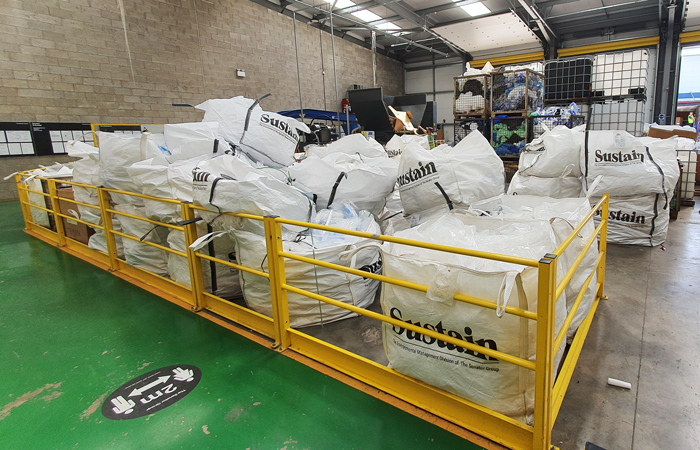
The Sustain operation that we visited is the Group’s internal recycling and remanufacturing centre and is housed in a purpose-built £1.5million 15,000ft2 unit. Since it opened in 2009, the site has recycled more than 270,000 items and diverted more than 7.5million kg of waste from landfill which equates to an emission saving of 8,790,798 Kg/CO2.
The central approach that Senator takes is that for every delivery to clients they will take back to Sustain not only the used Senator furniture but furniture from all other manufacturers that is being replaced. Not one item of the furniture received by Sustain will go to landfill. This currently equates to 1500 to 2000 items a week ranging from task seating to desks and storage. Significantly, the volume of returns is increasing as clients become more environmentally conscious and want their furniture recycled.
All received furniture goes through an assessment process so that suitable products in a good condition can be donated to local charities, schools and business start-ups. Some of the returns can be recommissioned for clients whereby products are updated, potentially in a new aesthetic, for the client to re-use on a new scheme.
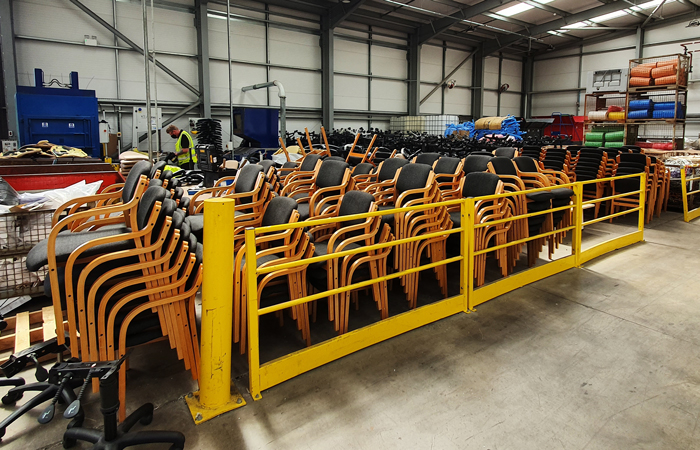
Although the donations and recommissioning are growing this still only amounts to 5% of the returned furniture so the overwhelming balance needs to be recycled. In this process the returned products are broken down by hand into their constituent materials and these are then recycled. It is this part of the operation that is most visually impressive as are the figures where in the past few years the recycled furniture has a combined weight of more than 20,000 tonnes and in 2020 alone this amounted to 494,038 items including 16,690 work chairs and 11,559 desks.
Furniture is broken down into its constituent parts so for instance the polypropylene chair backs are broken down into pellets, with some going into garden furniture. Wood and MFC boards can be shredded for biomass fuel, animal bedding and some is sent back to local MFC Board manufacturers for reuse.
The recycling of packaging is a key part of the Senator strategy and it starts with their continuous improvement team looking to reduce the initial volume of packaging in the design whilst ensuring that the quality of the packaging does not reduce. Packaging still has to be used but all of it is taken back from clients and again sorted in a labour-intensive process where each year 10,000 cubic metres of plastic packaging and cardboard is separated into different grades, much of it going to local producers to make more shrink wrap and packaging.
Dry cardboard is relatively easy to recycle into more cardboard packaging, chipboard and each year 60 tons of cardboard go from Sustain to local companies.
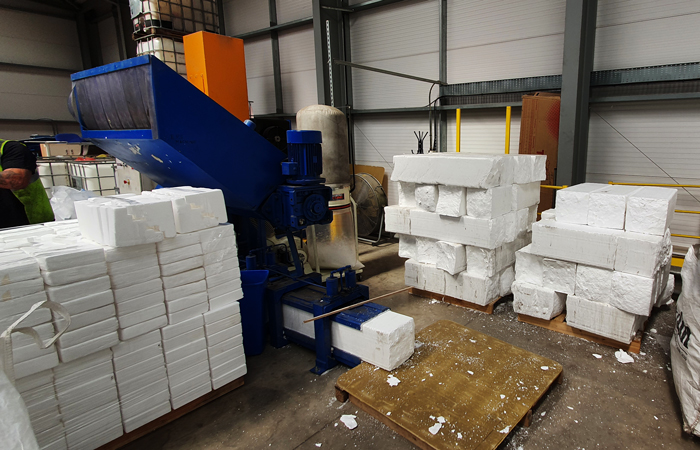
Polystyrene edging foam is one of the hardest materials to recycle but the approach here is to ‘re-use’ and edging material that is in good enough condition is marked with a dot each time it is sent out and the internal record for this currently stands at 7 uses. Eventually the foam has to be recycled and this starts with a mechanical process to compress it to remove the air and this results in a lorry load of polystyrene being compressed down to a very dense one cubic metre block. Each year Sustain recycles the equivalent of 50 articulated trucks of polystyrene much of it going to be use in insulation, and to make products such as park benches, decking, bannisters.
It has taken long term investment to develop Sustain’s recycling capabilities but the next key step for them is to grow the level of re-use and repurpose of returned furniture from the current 5%. To achieve this Senator have launched its ‘Wish List’ initiative to expand their current local furniture donation scheme, to all areas of the UK, through building greater connections with charities, SMEs and education on a regional level.
Although many companies in our sector have started their sustainability journey, overall, our sector still faces a massive challenge to develop a sustainable approach to manufacturing. There is much that can be learnt from the approach of the team at Senator and they are very willing to share their experience and also their enthusiasm and dedication.
Contact The Senator Group




